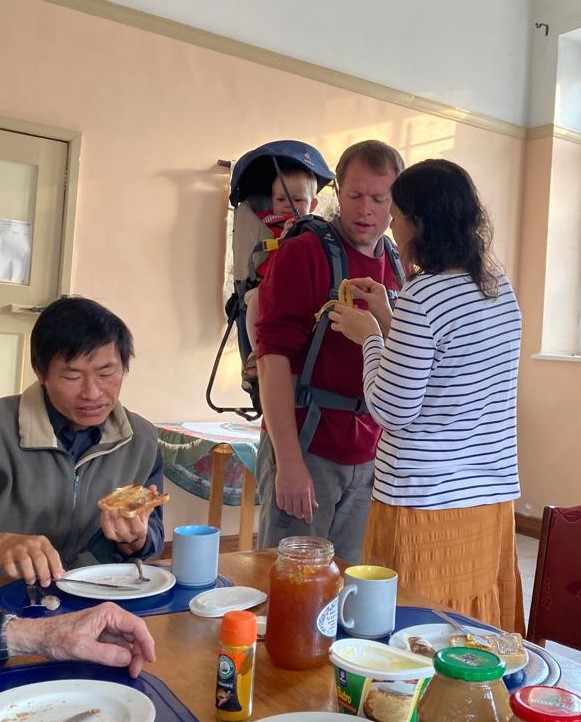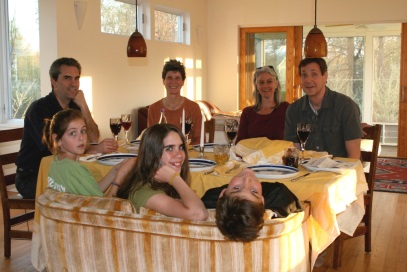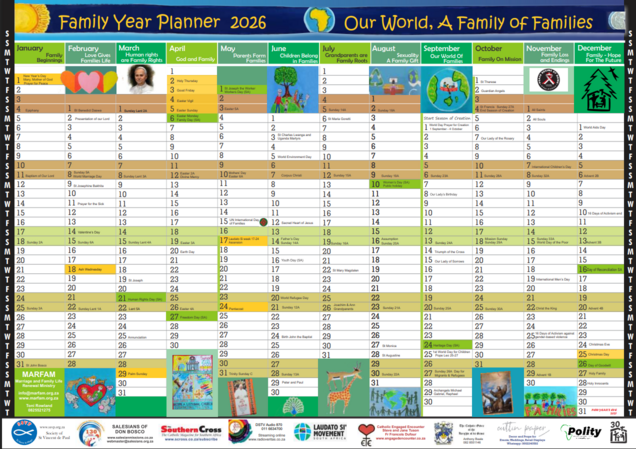
Every so often I meet up with some young people or a young family from Europe or elsewhere in the world e.g. Philippines, who are volunteering to work for the Church as a missionary family in South Africa for a year or more. Last week in Cape Town I was very impressed to meet a young couple with a baby from France, sharing their skills and expertise at the Salesian Institute. Living with this small family was also a heart-warming experience and wonderful witness to the resident community of priests. In Amoris Laetitia 208 Pope Francis, referring to marriage preparation, writes “with the help of missionary families the (engaged) couple’s own families and a variety of pastoral resources, ways should be found to offer a remote preparation that by example and good advice can help their love to grow and mature.” This also reinforced for me the important role of peer to peer ministry in and for families.

Catholic missionaries in South Africa have almost invariably been priests or consecrated religious. In some other denominations lay missionaries, leaving home and working elsewhere, are more common than in the Catholic church. The concept of missionary discipleship is a newish one in the church and it is possibly not well understood. Often it appears to be evangelising action by individuals for individuals, or possibly a community, rather than more directly for and in a family unit which is after all the context of the laity. These 5 ways below can be taken as a starting point by families responding to the call of Pope Francis to missionary discipleship, possibly with the slogan. “Love wasn’t put in your heart to stay. Love isn’t love till you give it away.”
1. Pray – fall deeply in love with God through constant personal and family prayer, the sacraments and Scripture. Listen to what action the Spirit plants in your hearts and minds to bring God’s love to the world around you.
2. Witness, “show and tell.” Beginning in simple ways make it clear to those around that you are a Catholic, a believer, a follower of Jesus. Talk about your faith with relatives, neighbours and friends, show signs of your faith in your and your family’s behaviour through symbols or activities. Become environmentally friendly and promote care of creation and justice issues.
3. Volunteer and be active in the parish spiritual or community groups to which you and your family belong. It is ideal but not always possible to be involved as a couple or family in family type activities, e.g. marriage ministry, parenting, elderly, sick etc. Consider what your talents, interests and hobbies are and how they can be shared with others. Support them and make time for the choices of others in the family.
4. Study. Learn more about your faith, the Church and its current programmes around spirituality, family enrichment, climate change, care of creation and justice.
5. Support. Give financial and practical support to parish, diocese, schools, care of creation programmes for the poor and the earth.

Missionary congregations of priests and religious have over the centuries taken the lead in spreading the faith. They are still important but today with decreasing religious vocations the responsibility should be shared with the laity and in particular with families. The Ursuline congregation of sisters was brought to South Africa in 1895 to open a school in Barberton. Education with a Catholic ethos remains a priority apostolate. Today there are 4 communities in Southern Africa 2 are schools, others are educational, formation and community centres. However, lay teachers have replaced the religious and sadly no Ursuline sisters are teaching in any Ursuline schools across the world today., having entered different aspects of education and work. http://www.ursuline.org.za TR FAMILY WEEKLY 26 OCTOBER 2022








Recent Comments